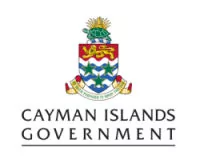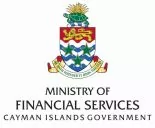Good morning. I hope you all had a good long weekend, and thanks for jumping right into work this morning by attending this press conference.
It seems that some in the media were on the same page as we were because merely hours after we invited you to today's event, an editorial was published saying that Government needed to call a press conference post haste with respect to the issues arising from the summit. It's good to see that there's agreement on this, and I'm glad this conference will demonstrate that while there may be confusion in relation to Cayman's position, the statements from Government have not changed. In fact, it's another opportunity for us to clear up some of the misunderstandings, which is exactly what we intend to do. I'd like to say that we will clear them up once and for all today but, because the pace of global developments is so fast – so quick – we know that Government must continually provide authoritative information.
As you know, I recently led a delegation to London to attend the UK Prime Minister's Anti-Corruption Summit on Thursday, 12 May. Accompanying me were the Minister of Financial Services, Wayne Panton; and the Councillor for Financial Services, Roy McTaggart, both of whom are on the platform today. I also was accompanied to London by technical advisors, including the Chief Officer in the Ministry of Financial Services, Dr Dax Basdeo; and Cabinet Secretary Samuel Rose.
This summit, which was highly publicised, was historic because it provided a rare opportunity for Government leaders, non-Government organisations, and media to have a joint discussion on global anti-corruption. It also was historic in that it attracted participants including the US Secretary of State; the Managing Director of the International Monetary Fund; the presidents of countries such as Nigeria, Afghanistan and Colombia; and the prime ministers of countries including Norway and the Netherlands. For the Cayman Islands, Minister Panton and I attended.
By hearing different views on the current state of global anti-corruption efforts, the United Kingdom intended to foster support for its initiative to develop an international mechanism to enhance the sharing of beneficial ownership information. Their objective is that, once developed and implemented, the mechanism would increase the effectiveness of the anti-corruption fight on a multi-jurisdictional scale.
For the sake of shared understanding, the phrase 'beneficial ownership' refers to a person who actually benefits from an asset. This could be a company, or another such asset. In the fight against corruption, then, it's easy to see that law enforcement and tax authorities need access, in accordance with global guidelines, to beneficial ownership information because it helps them to detect and prosecute criminality such as corruption, tax evasion and other serious crimes.
Cayman fully supports this goal. It is completely in line with our longstanding international engagements and local efforts that have enhanced our capacity to combat criminality. This is why, once the United Kingdom provided additional information regarding its initiative, and once certain language was accepted, we agreed to participate in the discussion that would lead to the development of such a mechanism. We gave that confirmation to the United Kingdom days prior to the summit, and we took the opportunity to reconfirm our position during the event itself.
The confirmation to the United Kingdom took the form of a letter to the Rt. Hon. George Osbourne, Chancellor of the Exchequer. The letter is dated 6 May 2016.
At this point I need to repeat, underscore, highlight – choose whichever word you like – an important fact here. For the record, Cayman has not agreed to implement a mechanism. Indeed, there is no mechanism to implement. It doesn't yet exist. Again, what we have agreed to is to participate in the global discussion to develop the mechanism.
I mentioned earlier that the summit was historic; for Cayman, the opportunity to participate in this discussion is also historic. For the first time, we have a seat at the table to develop the mechanism itself. We are not being strongly asked to implement a mechanism that was developed by others, without any input from us.
That, ladies and gentlemen, is evidence that while the road has been long and hard, we have achieved a position of respect and good standing in the global arena of financial services. We have long enjoyed this position from a commercial perspective, and we continue to do so. Our industry is doing quite well, despite increasing competition from other jurisdictions. And the commitment of this Government through our legislative agenda of significant new financial services products is serving to ensure this. But to achieve this position of respect and good standing in relation to the development of a global mechanism that's intended to root out criminality – well, that's a breakthrough that's certainly worth acknowledging.
Once this mechanism has been agreed and adopted by all Overseas Territories, Crown Dependencies, G20 and OECD Member States, Cayman has said that we also will participate in its global implementation. Our input at this stage includes stating that whatever mechanism is developed must ensure the full confidentiality and security of the data exchanged, and that it must be subject to appropriate legal gateways.
So, to reiterate, the United Kingdom has launched an initiative to discuss the development of a mechanism to enhance the sharing of beneficial ownership information among relevant authorities; and Cayman has agreed to participate in that discussion.
Because this initiative is multilateral – in other words, it involves a number of countries – it's broader in scope than the bilateral Exchange of Notes and Technical Protocol that we announced on 11 April. At this time, this agreement exists only between Cayman and the United Kingdom. That said, during the summit we announced that we are willing to enter into similar agreements with other countries, as an extension of our commitment to collaborate in anti-corruption efforts.
Now, some may ask, why is Cayman doing all of this? Why are we entering into a bilateral agreement with the United Kingdom and only weeks later, also agreeing to participate with the UK and other countries in the development of a multilateral mechanism, when both have the same objective of enhancing the sharing of beneficial ownership information?
The answer is that we do these things because we are committed to providing law enforcement and tax authorities in other countries with the information that's needed for them to fight serious crimes. This is the definition of transparency; and in our opinion, a multilateral mechanism such as that promoted by the United Kingdom has the potential to properly position transparency as the best means by which serious crimes are averted or prosecuted. Until that multilateral mechanism is agreed Cayman will continue to enter into bilateral agreements, to enhance transparency on a one-to-one scale.
As I said at the summit, for more than 20 years Cayman has demonstrated leadership in transparency. In terms of activity on the global stage, to date we have bilateral agreements with 36 jurisdictions for the exchange of tax information, upon request. We have enacted legislation relating to US FATCA, UK FATCA and the OECD's Common Reporting Standard.
We also are a party to the Multilateral Convention on Mutual Administrative Assistance in Tax Matters, which allows tax information to be exchanged automatically with more than 90 countries; and we do the same automatic exchange as part of the European Union Savings Directive. I ask you to note that these are multilateral agreements for tax matters, not for beneficial ownership information.
In addition to these agreements, for many years Cayman has had in place a strong anti-corruption framework, as evidenced by the extension in 2010 of the OECD Anti-Bribery Convention. We also expect that the United Kingdom will extend to us the United Nations Convention against Corruption.
This list is nothing new to local and international media because we say it all the time, and I hope that the public will have some familiarity with it as well. In fact I should say thanks to the taxi driver who called a local talk show recently to say that if her passengers make incorrect statements about our financial services industry, she counters with the number of information-sharing agreements that we have. Now that's being an ambassador. I personally am thankful that she takes the time to learn what we have done, and that she loves these Islands enough to speak up for us, with factual information.
In addition to the long list that I just gave you in regard to our global mechanisms, by this September we'll repeal The Confidential Relationships Preservation Law – which too often was misrepresented as a secrecy law. This will be replaced with The Confidential Information Disclosure Law, which will better clarify the means by which confidential information may be shared with appropriate authorities. And, although bearer shares, which could be used to rapidly change or conceal ownership of a company, have been immobilised in Cayman since April 2000, we've passed legislation to completely abolish them by 13 July this year.
Lest someone says that we are going too far with information sharing, we also are preparing for new data protection legislation to be introduced this September. This legislation, which is on par with legislation in the European Union, acknowledges that privacy is a basic human right. In fact, Article 8 of the European Convention on Human Rights states that everyone has the right to respect for his private and family life, his home and his correspondence. As the UK group Liberty puts it, a society that does not pay proper regard to personal privacy is one where dignity, autonomy and trust are fatally undermined.
This is different from secrecy, which is characterised by the attempt to hide activity in order to engage in criminal activity. Cayman does not support secrecy; but we certainly respect the right to privacy.
I wish to thank our financial services industry and in particular Cayman Finance, represented here by CEO Jude Scott. Cayman Finance and its many industry-leading members provided strong support for Government's position in relation to our discussions with the United Kingdom, and I am happy to say that the Government / Cayman Finance relationship is stronger than ever.
I also want to thank the staff of my office, the Cabinet Office, and the Ministry of Financial Services, including the members of the London delegation, for their commitment and hard work.
Members of the media, thanks again for coming here on such short notice. And to everyone viewing and listening, thanks for caring enough to hear the facts about what Cayman has done, and is doing, to participate in global anti-corruption efforts.
The content of this article is intended to provide a general guide to the subject matter. Specialist advice should be sought about your specific circumstances.

